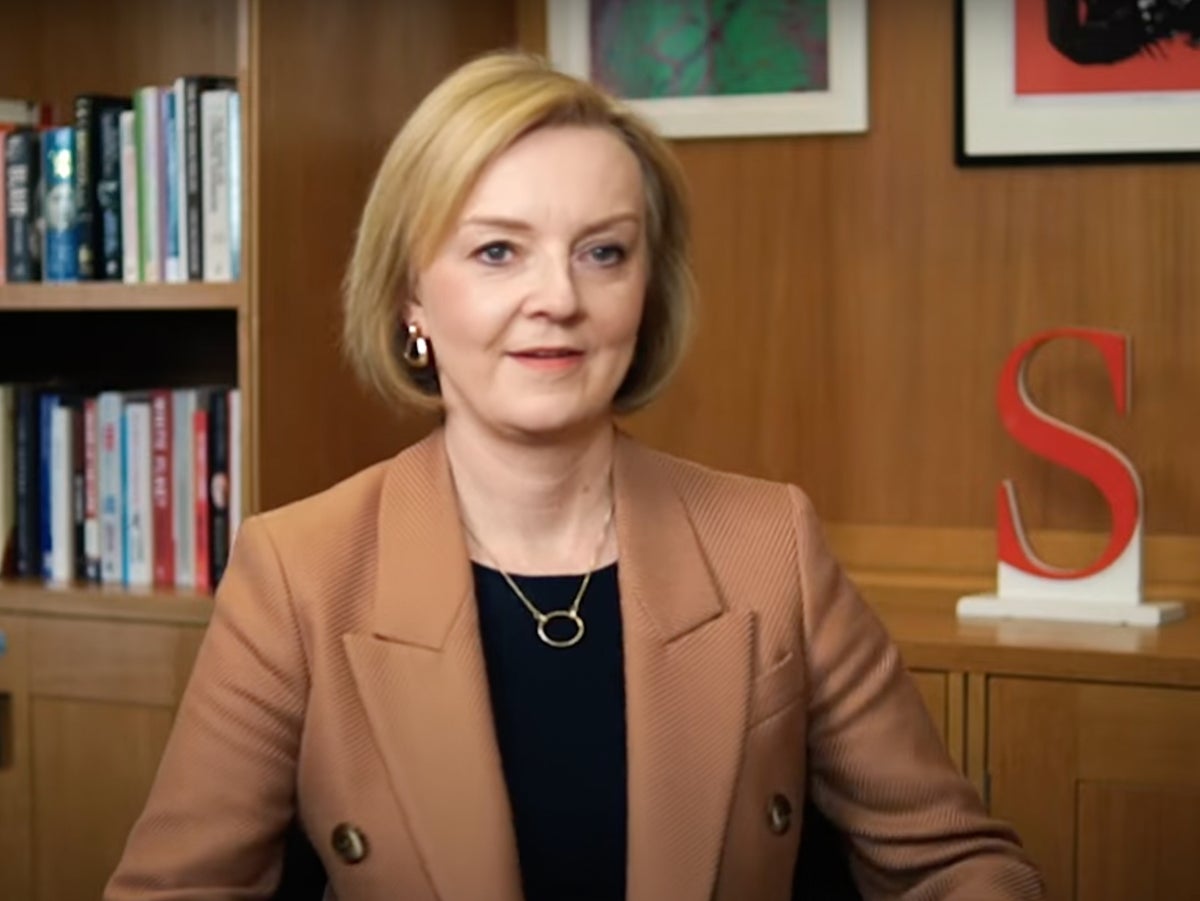
Liz Truss has admitted she did not know anything about the “tinderbox” of pension liabilities before her disastrous mini-Budget – claiming it was the biggest factor in the turmoil that brought down her premiership.
The former prime minister blamed Whitehall officials for autumn’s economic mess, vowed to keep fighting for tax cuts and denied any ambition to return to No 10 in her first interview since her exit.
Ms Truss also revealed that her premiership was doomed from the moment she felt pressured into firing her chancellor Kwasi Kwarteng during her interview with The Spectator.
The former Tory leader was also unrepentant about her spree of unfunded tax cuts, blaming the Office for Budget Responsibility (OBR) for failing to provide optimistic-enough forecasts.
Ms Truss also suggested Bank of England and Treasury officials were to blame for failing to flag issues – claiming that she was never told about the liability-driven investing (LDI) risk to pensions.
The ex-PM admitted she “didn’t know the existence of LDIs – which turned out to be the main problem”. She said Mr Kwarteng “wasn’t informed of this either” – claiming that they may have even delayed their radical mini-Budget had they understood the problem.
The Bank of England took emergency action to buy bonds in the wake of the mini-Budget fiasco which left some pension funds close to collapse, with some funds reliant on LDI and therefore vulnerable to market panic.
Ms Truss was also unapologetic about trying to abolish the 45p top rate of tax to help the already wealthy – a move she was forced to abandon after an outcry from her own MPs.
Asked if she regretted trying to scrap the top tax rate, she said: “We could all think different things with hindsight, and perhaps it was a bridge too far – but I’m not convinced that it was a magic bullet, that everything would have been fine if we hadn’t done that.”
The senior Tory also insisted that she would continue to make the case for widespread tax cuts across the board. “Why have we not won the argument for the past ten years? … We have tried to placate a lot of the distributionists.”
Ms Truss said she decided to fire Mr Kwarteng after getting “serious warnings from senior officials that there could be a potential market meltdown the following week if I didn’t take action”.
Asked if she lost all authority when she replaced him with Jeremy Hunt, Ms Truss conceded: “Well yes, and I think that was probably the case. Obviously, looking back, from where we’re sitting now, I can see that.
“At the time, I was just thinking: ‘how do I make sure there’s not a market meltdown?’ So I wasn’t really focused on my long-term future,” she added.
On her friendship with Mr Kwarteng, she added: “I count Kwasi as a friend and what happened: it was a difficult decision. Was it the right decision [to sack him]? It’s very hard to tell.”
Ms Truss still has “half a hope” she can lead the Tories in opposition after the next election, allies claimed at the weekend. Loyal backers have formed the Conservative Growth Group (CGG), and have revived WhatsApp a group from her leadership campaign.
Asked if she wanted to be PM again, Ms Truss said “No”, and added that she “will be supporting” Rishi Sunak from the backbenches.
“I definitely want to be part of promoting a pro-growth agenda,” she said. “I definitely want to carry on as an MP. I think we need to start building more of a strong intellectual base. But I’m not desperate to get back into No 10, no.”
Sunak-supporting Tory MPs have dismissed the idea of a comeback as a “fantasy” and mocked the defence of her premiership as “delusional” and “sour grapes”. One senior party figure told The Independent she should have “kept her head down and stayed loyal”.







